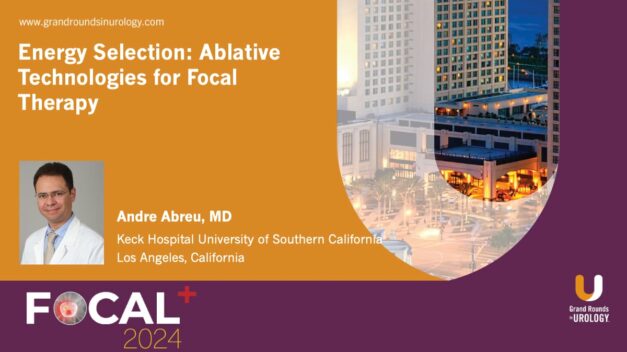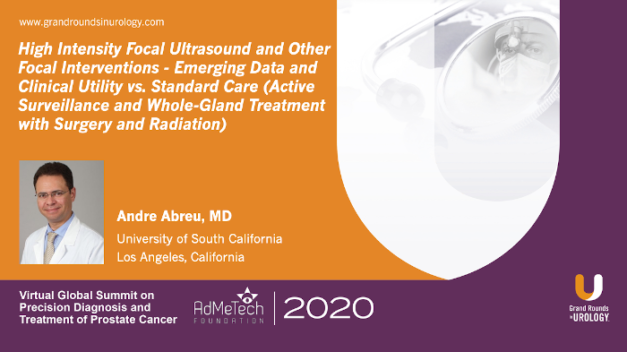Energy Selection Ablative Technologies for Focal Therapy
Andre Abreu, MD, delves into energy modalities for focal therapy in prostate cancer, presented with a comprehensive and practical approach. This 16-minute presentation explores multiple energy options, including cryoablation, high-intensity focused ultrasound (HIFU), irreversible electroporation (IRE), laser ablation, and microwave ablation. Dr. Abreu emphasizes the importance of aligning energy selection with institutional expertise and patient-specific factors.
Patient-specific considerations guide technology selection, including rectal wall thickness and proximity to critical structures. Transition zone lesions benefit from tools like aqua ablation, while anterior lesions present challenges for certain devices. The speaker emphasizes the need for personalized management, integrating oncologic characteristics with procedural capabilities.
Dr. Abreu optimistically frames the future of focal therapy, with ongoing trials like vapor ablation and the potential for low-dose radiation therapy combined with IRE promising advancements. He calls for practical recommendations and an invitation for ongoing exploration in the evolving field of prostate cancer management.
Read More


